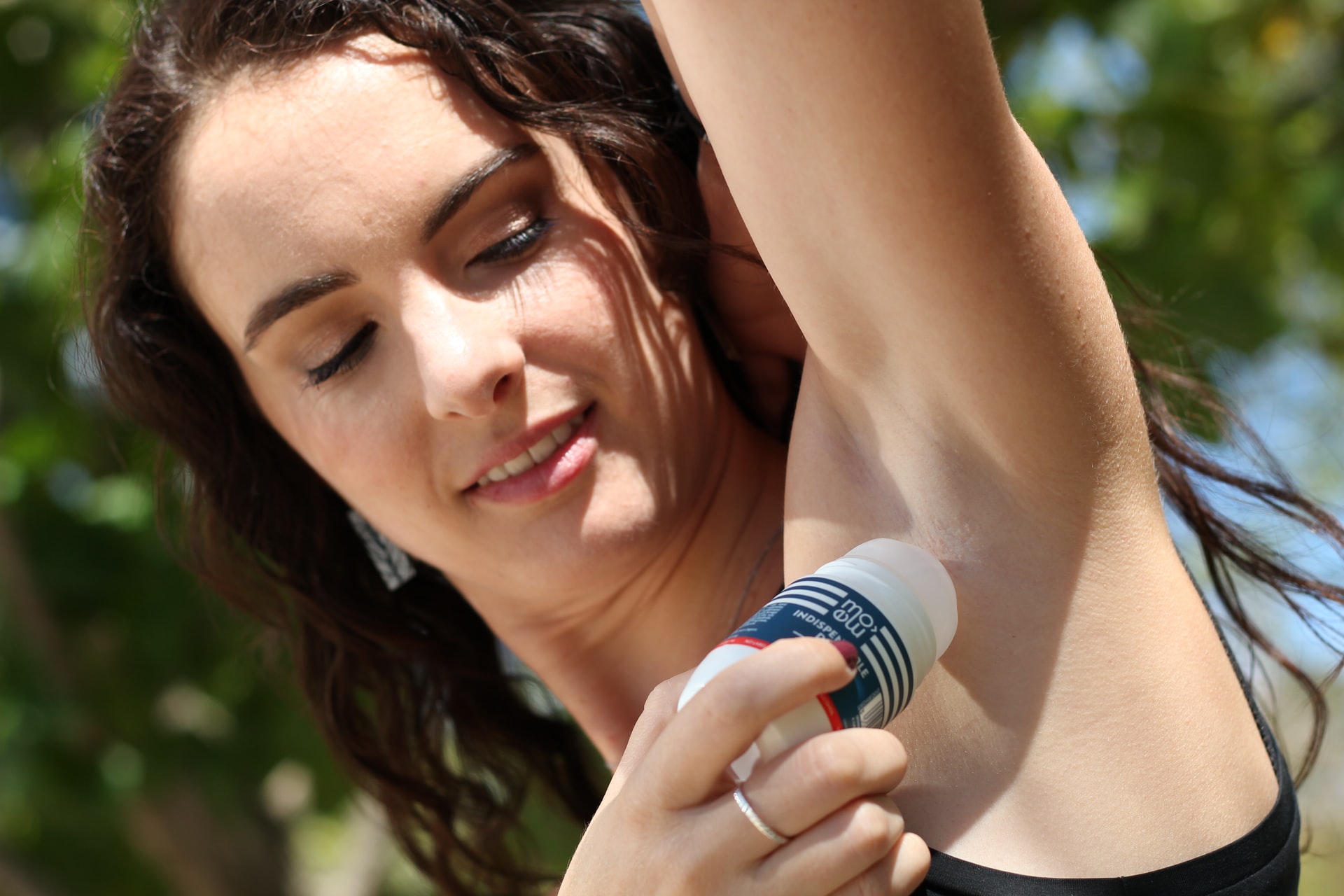
Body + Mind is reader-supported. We may earn an affiliate commission when you buy through some of the links on our site.
In the early 2000s, rumors circulated that antiperspirants were linked to an increased risk of Alzheimer’s. More recently, there have been claims that the aluminum in these deodorants raises your chances of getting breast cancer.
So what is the truth? Is the aluminum in deodorant bad for your health?
Keep reading to learn more and discover some aluminum-free alternatives!
An antiperspirant blocks your sweat glands to stop you from perspiring. In comparison, a deodorant uses scent to cover body odor (BO). Most deodorants on the market are a combination of deodorant and antiperspirant. In other words, they stop you from sweating and keep you smelling fresh.
Aluminum chlorohydrate makes a standard deodorant an antiperspirant. Many people believe that by blocking the sweat glands, toxins in the body cannot escape. Theories suggest that the aluminum can enter the body through the armpit and cause breast cancer — but what does science say?
Aluminum deodorant has fewer side effects than you might imagine. If you knick yourself while shaving, the deodorant may cause skin irritation. However, this is not due solely to the aluminum — other ingredients, like triclosan, can cause irritation. Otherwise, redness or discomfort is uncommon unless you have an allergy.
Most toxins are processed and flushed from your body through your kidneys. Therefore, unless you already have extensive kidney damage, toxins absorbed through your skin will be subsequently flushed by your kidneys. If your kidneys function at 30% or less, you should talk to your doctor about what deodorant is right for you.
Scientific studies have debunked the myth that aluminum deodorant causes breast cancer. One study showed that only 0.012% of aluminum chlorohydrate is absorbed through the skin when using an antiperspirant. You are more likely to ingest higher concentrations in the air you breathe or from the food you eat.
A relationship has not been established to suggest that exposure to aluminum in the body impacts Alzheimer’s disease development. Aluminum is observed in healthy brains, and there’s no substantial evidence to indicate that it exists in higher concentrations in patients with Alzheimer’s. Simply put, there’s no proof that the aluminum in your deodorant plays any role in the development of the disease.
Parabens are regularly used in makeup and skin care products. It’s a chemical that is used as a preservative and prevents fungi, bacteria and yeast from growing. Like many substances, parabens can be absorbed through the skin and exist in various deodorant products.
Parabens mimic estrogen — a hormone produced naturally within the body. But prolonged exposure can increase your risk of developing breast cancer. Similar to aluminum, the levels absorbed through the skin from deodorant are minimal. So while parabens might not be the healthiest chemical, there’s no need to throw away your cosmetics and body sprays.
Many companies have begun making aluminum-free deodorant. Popular brands like Speed Stick, Secret and Dove all offer special deodorants with an aluminum-free formula. Other businesses like Kopari or Native only offer 100% aluminum-free deodorants.
Popular ingredients in deodorants with 0% aluminum include:
Aluminum-free deodorant comes with its own hurdles. Some substitutions like baking soda and alcohol can cause skin irritation or dryness. Additionally, everyone’s body reacts differently, so what covers one person’s body odor might not cover your own.
Choose what suits your lifestyle. Is aluminum in deodorant bad for your health? Scientific studies say any damage would be negligible. If you still feel uncomfortable with the thought of using deodorant with aluminum or parabens, then opt for something natural.
The key is to use what works best for you and keeps you feeling comfortable. There’s no need to sweat the details.
Your email address will only be used to send you our newsletter, and at any time you may unsubscribe. For more information, see our Privacy Policy.